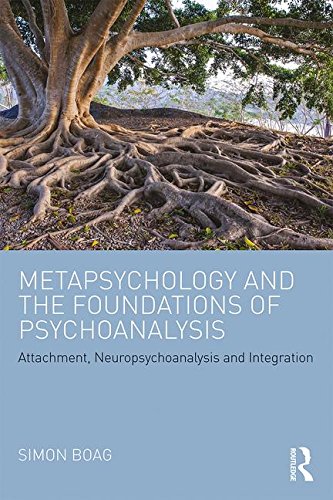

Most ebook files are in PDF format, so you can easily read them using various software such as Foxit Reader or directly on the Google Chrome browser.
Some ebook files are released by publishers in other formats such as .awz, .mobi, .epub, .fb2, etc. You may need to install specific software to read these formats on mobile/PC, such as Calibre.
Please read the tutorial at this link: https://ebookbell.com/faq
We offer FREE conversion to the popular formats you request; however, this may take some time. Therefore, right after payment, please email us, and we will try to provide the service as quickly as possible.
For some exceptional file formats or broken links (if any), please refrain from opening any disputes. Instead, email us first, and we will try to assist within a maximum of 6 hours.
EbookBell Team

0.0
0 reviewsMetapsychology and the Foundations of Psychoanalysis redresses faults in Freud’s original conception to develop a coherent theoretical basis for psychodynamic theory. Simon Boag demonstrates that Freud’s much maligned ‘metapsychology’, once revised, can provide a foundation for evaluating and integrating the plethora of psychodynamic perspectives, by developing a philosophically-informed position that addresses the embodied, interconnected relationship between motivation, cognition and affects.
The book centres upon the major concepts in psychoanalysis, including the notion of unconscious mental processes, wish-fulfilment, fantasy, and repression. Both philosophical considerations and empirical evidence are brought to bear upon these topics, and used to extract the valuable insights from major approaches. As a result, Boag’s revised general psychology, which stays true to Freud’s intention, addresses psychoanalytic pluralism and shows it is possible to develop a unified account, integrating the insights from attachment theory and object relational approaches and acknowledging the rightful role for neuropsychoanalysis.
Metapsychology and the Foundations of Psychoanalysis will be of interest to psychoanalysts, psychiatrists, philosophers of mind and psychologists, as well as anyone concerned with neuropsychoanalysis or psychoanalysis and attachment theory.